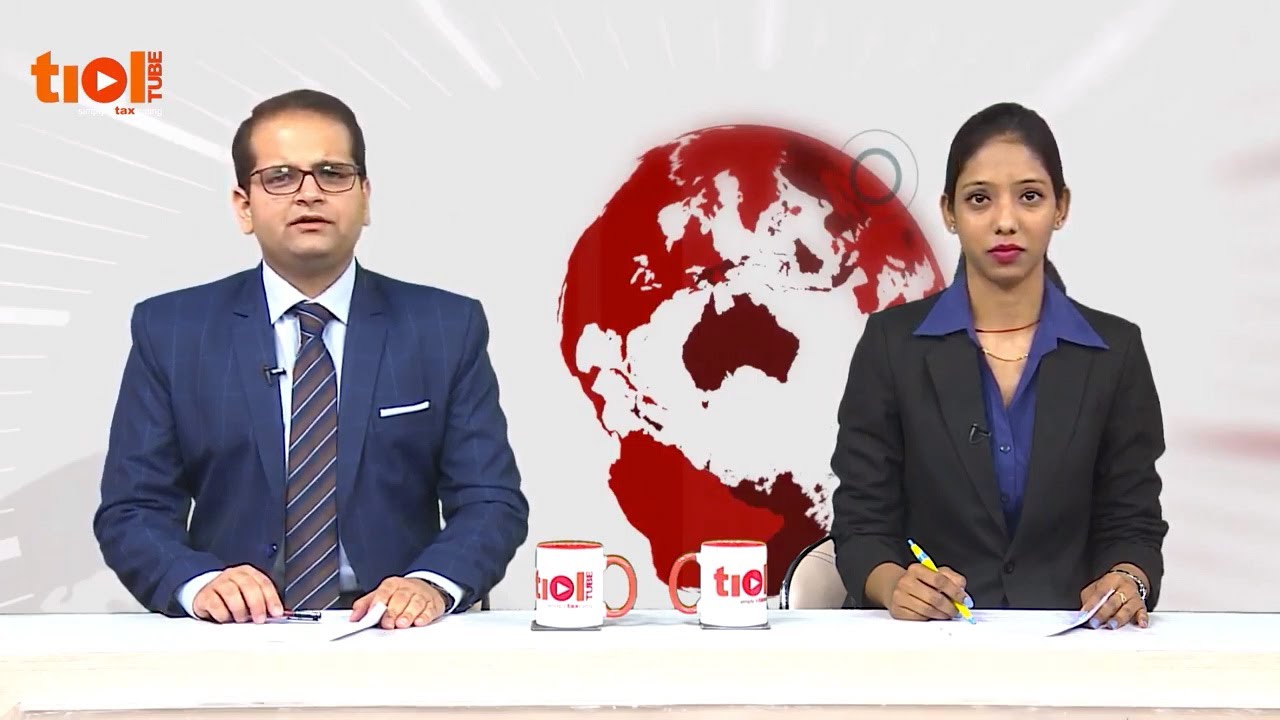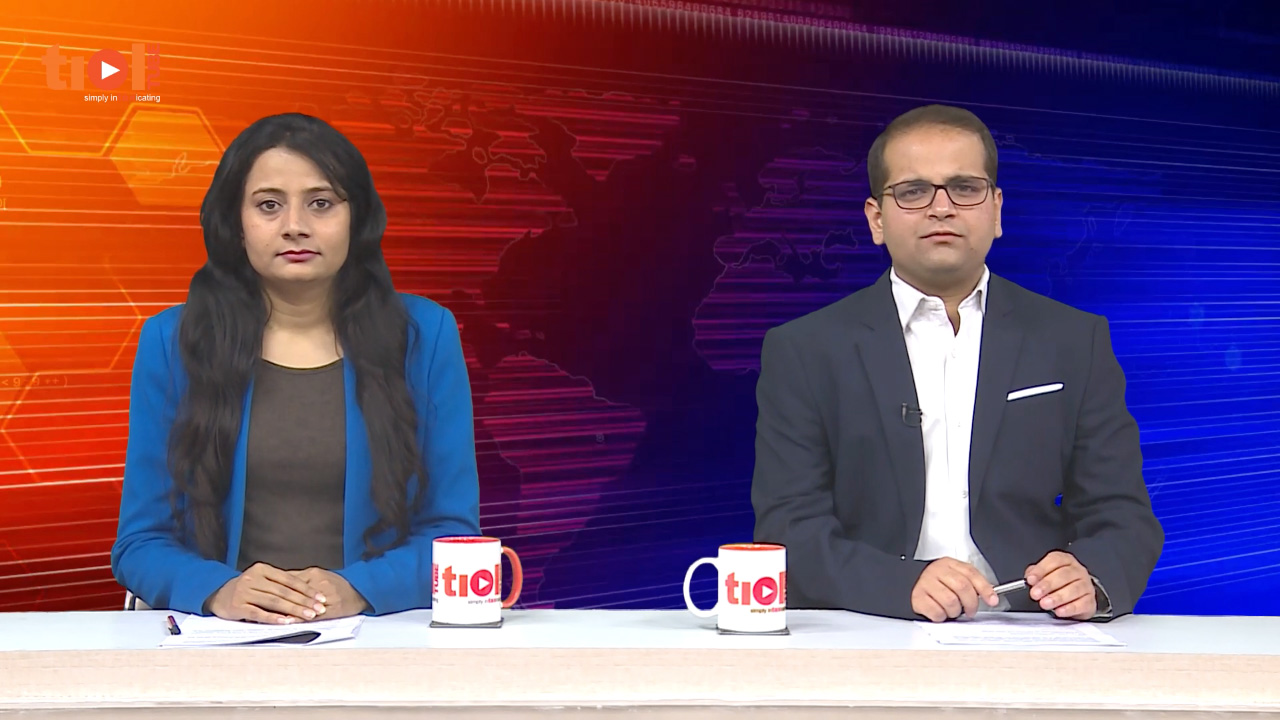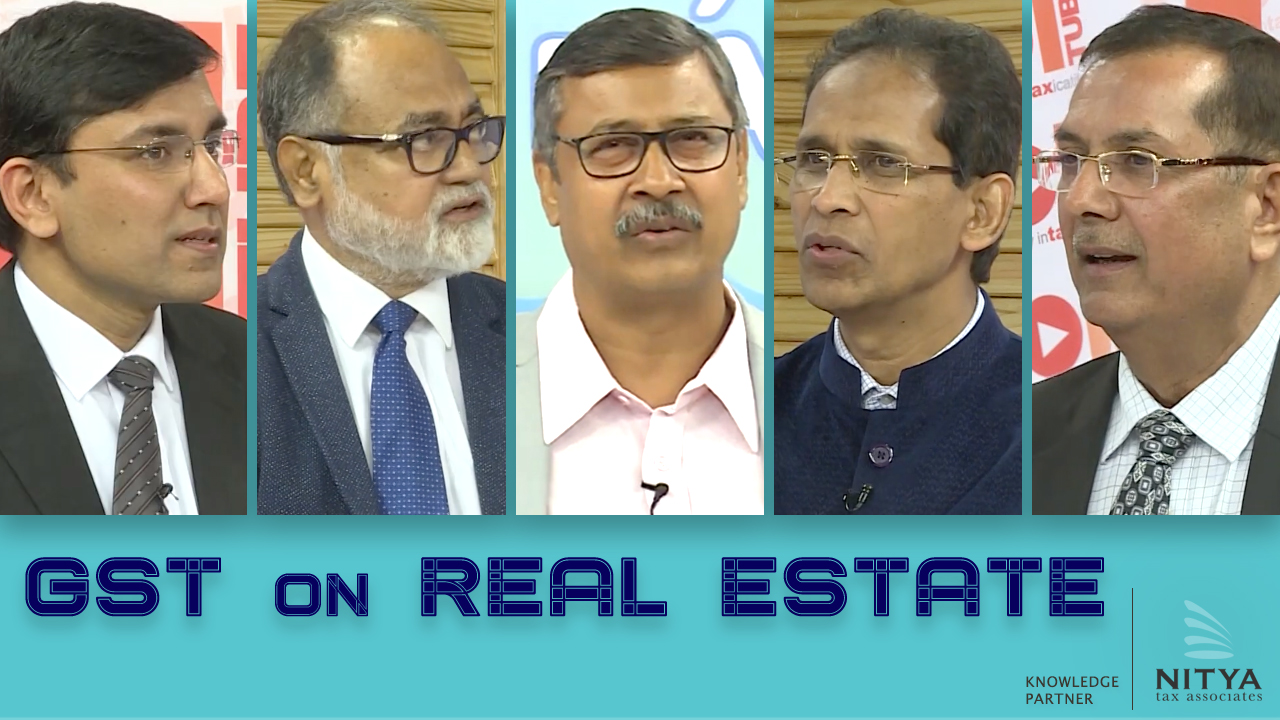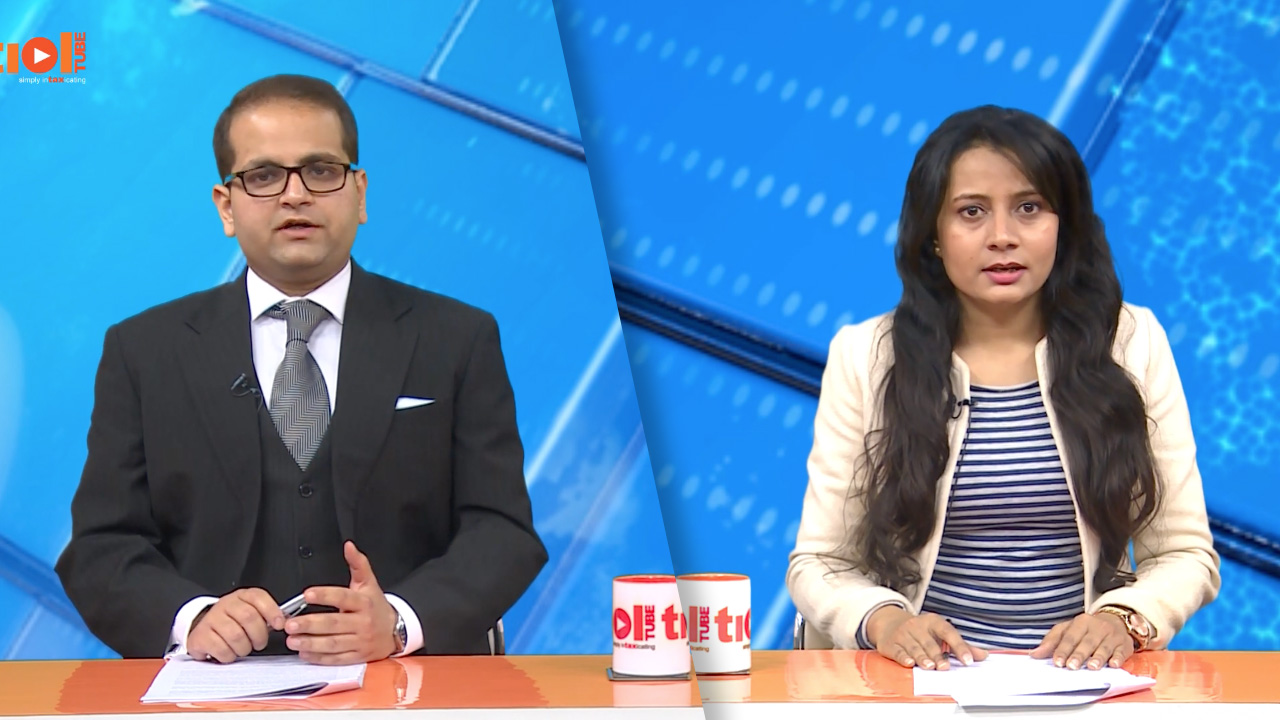|
SERVICE TAX
2019-TIOL-1049-CESTAT-MUM
Bank of Maharashtra Vs CC & CE
ST - Exempted services includes services on which no service tax is leviable u/s 66 of the FA, 1994 - no merit in the argument of the appellant that interest is to be deducted only for the purpose of calculating the taxable value - lending of loans on interest is an exempted service, therefore, amount of interest earned in advancing of loans needs to be taken into consideration while determining the amount to be reversed in terms of rule 6(3A)(c) of the CCR, 2004 - no infirmity in the order passed by the Commissioner - such view is in conformity with the Tribunal decision in UCO Bank - 2014-TIOL-1902-CESTAT-KOL ] and HDFC Bank - 2018-TIOL-3516-CESTAT-MUM ]: CESTAT [para 6.2, 6.3]
ST - Manpower services provided to subsidiary METCO - appellants have deputed their employees to their sister concerns who have availed the services of such employees - sister concern was reimbursing the wages/salary paid to such employees - As long as it is not proved that the appellants have received anything other than the reimbursement of wages, no service tax can be levied - Tribunal decision in Axis Bank - 2017-TIOL-191-CESTAT-MUM followed: CESTAT [para 6.4]
ST - Director's sitting fees - Tax was demanded and confirmed in respect of sitting fees as well as expenses reimbursed - Bench finds force in the contention of the appellant that reimbursed expenses are not be included in the value of the taxable services in view of apex court decision in Intercontinental Consultants & Technocrat Pvt. Ltd. - 2018-TIOL-76-SC-ST - CA certificate did not specify the actual sitting fees and expenses reimbursed, therefore, matter remanded to the adjudicating authority: CESTAT [para 6.6]
ST - Limitation - Bench is not in a position to decide as to whether all the material information was disclosed to the department and as to whether the necessary information was contained in the ST-3 returns submitted periodically or otherwise - Bench is not inclined to give a carpet ruling that since the appellants are a public sector undertaking, suppression of facts cannot be alleged - as the issue depends on case to case basis, matter remanded: CESTAT [para 6.7]
ST - Penalty - Appellants are a public sector undertaking and most of the issues involved were interpretative in nature, therefore, imposition of 100% penalty is not warranted - as the amounts were paid before issue of SCN, penalties can be restricted to 25%: CESTAT [para 6.8]
ST - Corrigendum to Order-in-Original - Commissioner vide the corrigendum on 02.02.2016 restricted the demand confirmed to a period of five years only and dropped demands beyond the period of five years - Revenue in appeal.
Held : It goes without saying that the SCN sought to recover duty beyond a period of 5 years and this was certainly without any authority of law - SCN could have been issued covering a period of 5 years only and the adjudicating authority could have by no means confirmed a demand beyond 5 years - Although it may appear that the Commissioner has reviewed his own order, effectively he has made only arithmetical corrections in the order issued, therefore, action of the Commissioner has not resulted in any serious violations of the provisions of law - matter, however, remanded to examine the period involved in the SCN dated 24.04.2015 and also independently analyse whether or not there is sufficient reason to invoke extended period: CESTAT [para 6.9]
- Appeals disposed of: MUMBAI CESTAT
2019-TIOL-1048-CESTAT-MUM
Hettich Competence Services Pvt Ltd Vs CGST
ST - Refund - Commissioner(A) rejected refund of unutilized CENVAT Credit on the ground that section 109 of the FA, 2013 provided that amount paid under VCES, 2013 shall not be refunded under any circumstances - appeal to CESTAT.
Held : Appellant had declared certain tax dues under VCES, 2013 and availed CENVAT credit which remained unutilized as services rendered were all exported - refund of such credit was claimed under rule 5 of CCR, 2004 - A conjoint reading of sections 107 & 109 of the FA, 2013 relating to service tax payment under VCES, 2013 would clearly reveal that any amount paid in pursuance of such declaration made u/s 107 the same shall not be refundable under any circumstances which would indicate that any amount if paid in excess during such voluntary disclosure would not be refunded - the provisions have never debarred the assessee from claiming refund if it is otherwise entitled to - CBEC Circular 170/5/2013-ST dated 08.08.2013, at sr. no. 17 & 18 clearly mentions that admissibility of CENVAT credit on inputs and input services in respect of which declaration is made, is governed by the provisions of CCR, 2004 - except for the condition that payment of tax dues under VCES cannot be made through CENVAT credit, rest of CCR is applicable even though duty is discharged through voluntary disclosure scheme - order of Commissioner(A) rejecting refund of unutilized credit and that too without providing an opportunity of being heard is an erroneous order - impugned order set aside and appeal allowed - amounts to be refunded within three months along with interest: CESTAT [para 5, 6]
- Appeals allowed: MUMBAI CESTAT
CENTRAL EXCISE
2019-TIOL-1047-CESTAT-MAD
Castrol India Ltd Vs CGST & CE
CX - The appellant company manufactures lubricating oils - It availed Cenvat credit of differential duty on account of price increase on goods stock transferred during the relevant period - However, such credit could not be utilized fully due to closure of its unit - Hence it claimed refund of unutilized Cenvat credit - SCN was issued proposing to reject the refund claims on grounds that the same was not in order u/s 11B of the CEA 1944 - The SCN was upheld on adjudication and such rejection of refund was sustained by the Commr.(A) - Hence the present appeal.
Held - The refund was denied on grounds that there is no provision to refund credit lying in books of accounts - Such accumulation of credit occurs over a period of time & the same is built up and assiduosly gathered over time - Hence in the normal course, the credit would have been utilized towards payment of duty liability on manufactured goods or taxable services - Thus closure of factory cannot snatch such amount from the manufacturer - Besides, availment of Cenvat credit & its utilization is akin to a fundamental right in indirect taxation - It is as good as cash balance & is to be utilized for discharging duty liability - Thus refund of unutilized credit cannot be denied - Hence the assessee is entitled to refund of unutilized credit - The O-i-A in challenge warrants being quashed: CESTAT (Para 1,2,7.1,7.2,9)
- Assessee's appeal allowed: CHENNAI CESTAT
2019-TIOL-1046-CESTAT-MUM
Benison Footwear Pvt Ltd Vs CCE
CX - Question is whether it is mandated that the goods viz. footwear be marked with the price - Footwear is covered within the ambit of the Standards of Weights & Measure (Packaged Commodities) Rules, 1977 and, therefore, the contention that these are not required to be so marked or are exempt is not relevant - in view of the apex court decision in Liberty Shoes Ltd. [ 2015-TIOL-325-SC-CX ], assessment should be under section 4A of the CEA, 1944: CESTAT [para 9]
CX - Section 4A of the CEA, 1944 - Applicability of concessional rate of duty under Notification no. 5/2006-CX - Manner in which the entitlement to the exemption or concession is to be extended is prescribed in the notification itself i.e. by embossing or marking with indelible ink - It is not the case of the appellant that the goods were marked - on the contrary, it is clear that the goods were affixed with sticker - In a similar dispute, in Amit India Foot Art Pvt. Ltd. [ 2017-TIOL-3336-CESTAT-DEL ], Tribunal has held that the lack of embossing with indelible mark is violative of the notification itself - There is nothing on record in the present case that the impugned goods were marked or subject to test by the Indian Institute of Packaging and National Test House to ascertain that marking did exist on the footwear - In the absence of such evidence and in view of the admitted fact that stickers were the only means of indicating the retail sale price, Bench finds no reason to hold that the condition of the notification has been complied with - Duty liability would be restricted to the tariff rate of 16% on the goods cleared without embossing or marking the 'maximum retail sale price'a with indelible ink subject to appropriate abatement: CESTAT [para 10]
CX - Limitation - Existence of the invoices submitted in routine will not suffice for restricting the demand to the normal period - It is on record that the appellant company had filed returns but without indicating that the goods were not marked with indelible ink but affixed with stickers - the provisions of the notification are also crystal clear and it was incumbent upon the appellants to comply with the conditions therein - imposition of penalty u/s 11AC would not, therefore, suffer from illegality: CESTAT [para 12]
- Appeals partly allowed: MUMBAI CESTAT
2019-TIOL-1045-CESTAT-MUM
Bharat Petroleum Corporation Ltd Vs CCE
CX - Inputs were received during the period April 2002 to March 2006 but CENVAT credit was availed by appellant in September and October 2006 - Revenue has denied the credit on the ground that there has been a delay in taking the credit - appeal to CESTAT.
Held: Reason for not availing the CENVAT credit immediately is due to the confusion regarding quantum of credit that could be availed and attributable to dutiable goods since there was involvement of exempted activities too - appellant had been making various correspondences with the department and the jurisdictional authorities were aware of the entire process, therefore, it cannot be said that the appellant had not made any claim for availment of the CENVAT credit - entries of receipt of all the inputs were made in the private records and in books of account at the material time, hence denial of credit at a later point of time is not justifiable - matter remanded to adjudicating authority for ascertainment of facts and passing of fresh order within a period of three months since it is a very old case: CESTAT [para 4, 4.1]
- Matter remanded: MUMBAI CESTAT
2019-TIOL-1044-CESTAT-MUM
Exide Industries Ltd Vs CCE
CX -Notification 64/95-CX - Appellants are supplying Electronic Storage Batteries to Indian Navy without payment of CE duty - Case of the department is that against each set of batteries (240 + 4 cells), four cells (test cells) that are supplied are not used for fitment to a submarine vessel but are used for 'life cycle test' and hence exemption is not available thereon - appeal to CESTAT.
Held: There is no dispute that though the four cells are treated as 'test cells' by the Quality Assurance Officer in the factory premises of the appellant but the entire 248 cells were supplied to the Indian Navy and the appellant have issued invoices for the entire 248 cells and a certificate is also received from the Naval Store Officer, Indian Navy to the said effect that the same are purchased exclusively for use on board Indian Navy Ships - a certificate is also received from the Quality Assurance Officer that the Test cells retained in the custody of the QA officer in the factory are used to replace the cells on board from time to time for number of reasons viz. when electrical performance of some cells is found lagging, damage accidents etc. - Exemption entry is pari materia to the earlier notification 70/77-CE - ratio of the judgment in Standard Batteries Ltd . - 2005-TIOL-1708-CESTAT-MUM extending the exemption is applicable to the present case - impugned orders are, therefore, set aside and appeals are allowed: CESTAT [para 4]
- Appeals allowed: MUMBAI CESTAT
CUSTOMS
2019-TIOL-1043-CESTAT-MUM
Jayaswal Neco Industries Ltd Vs CCE
Cus - Rectification of bill of entry was denied only on the ground that the assessment of bill of entry was not challenged - Bench does not agree with this contention as there is no lis between the assessee and the department regarding eligibility of the exemption notification - only option available for rectification of bill of entry is s.154 - If the contention of the Revenue is accepted, then for each and every error occurring in the bill of entry, either by the assessee or by department, the assessment is required to be challenged, then the provisions of s.154 of the Customs Act, 1962 will stand redundant which is not the intention of law: CESTAT [para 4]
- Appeal allowed: MUMBAI CESTAT
2019-TIOL-1042-CESTAT-MUM
Dhiru A Shah Vs CC
Cus - Smuggling - Confiscation of goods and imposition of penalty - There is no fault in the ruling of the original authority that co-accused could not be subject to cross-examination by another noticee - appellant had not taken advantage of the proffered chance to cross-examine the other individual and chose to absent himself from the proceeding - It is, therefore, not open to the appellant to now claim that only one opportunity had been given especially since the non-availment of the opportunity is not justified by any submission whatsoever - It is also not open to the appellant to plead for a relief that was a granted and, upon failure to avail of that relief, to claim a different ground for assailing the first order, now - By failure to participate in the cross-examination, there is an implicit admission of the relevancy of the statements - no relief can be granted to the appellant - Appeal is dismissed: CESTAT [para 5 to 7]
- Appeal dismissed: MUMBAI CESTAT |









